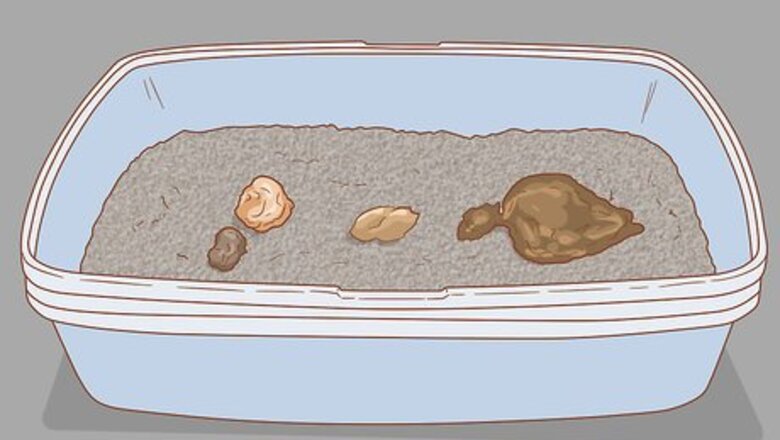
views
Seeking a Diagnosis
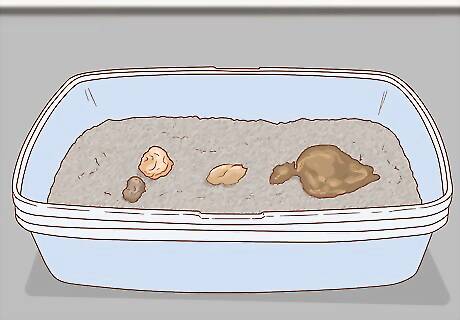
Watch for changes in bowel movements. If you want to diagnose giardia, pay attention to your cat's litter box. The main sign of giardia is unusual bowel movements. Cats will have foul-smelling, watery diarrhea that may contain trace amounts of blood. Some cats may also lose weight with giardia due to the diarrhea. Cats may also become less active in this weakened state.
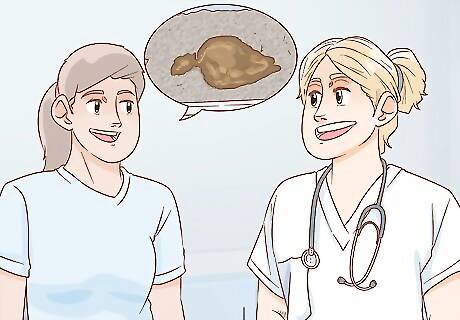
Explain your cat's symptoms to your vet. If you notice any unusual symptoms, take your cat to the vet right away. The vet will work with you to diagnose and treat giardia. Tell the vet all the symptoms you observed and they will determine whether to test your cat for giardia. The symptoms of giardia do not necessarily indicate giardia. Unusual bowel movements can be caused by lifestyle changes, such as a change in diet.
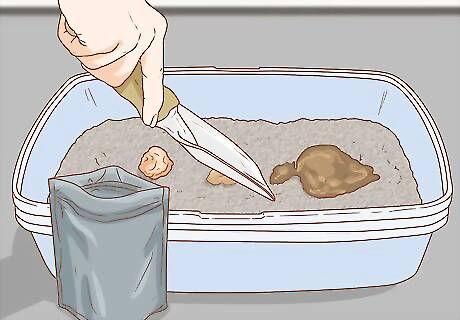
Collect a stool sample. Giardia infections are usually detected via a stool sample. Collect a recent stool sample from your cat's litter box for testing. Place the stool sample in a plastic bag and bring it to your vet's office for testing. Fecal testing should be done on an annual basis in addition to times when you think your cat may be ill.

Have your vet test the sample. Your vet will send the sample to a lab or test it in the clinic. The test will determine if your cat has giardia. A stool sample is usually used to detect giardia. However, depending on your cat's symptoms and risk factors, vets may occasionally diagnose giardia without a stool sample.
Treating Your Cat's Symptoms
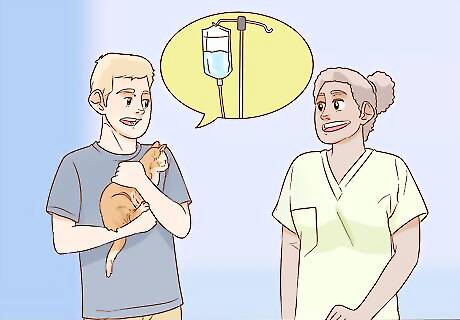
Hospitalize your cat if necessary. Usually, giardia can be treated at home. However, the condition can cause dehydration. If your cat is severely dehydrated, your vet may want to leave your cat at the hospital so it can receive fluids via an IV.
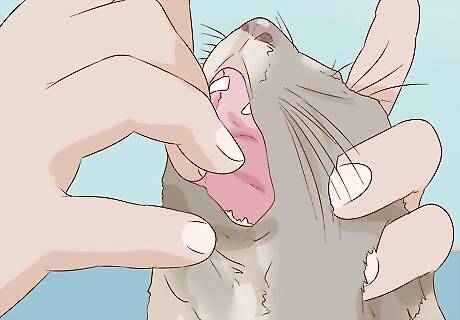
Provide the necessary medications. Giardia is usually treated through prescription medications. Your vet may administer the medications at the office. They may also send you home with medications for your cats. Your vet will provide information about how often and for how long to give your cat medications to fight giardia. Metronidazole is the medication most often prescribed. Unless your cat is pregnant, your vet will likely give you a prescription for metronidazole. Pregnant cats are usually treated with the alternative medication fenbendazole.
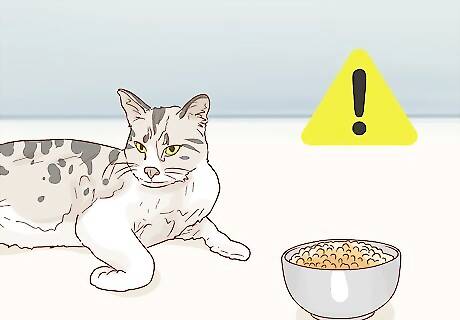
Monitor your cat for signs of dehydration. Younger cats and kittens are especially prone to developing dehydration due to giardia. Dehydration can be life-threatening when left untreated. If you notice signs of dehydration in your cat, take it to your vet as soon as possible. The following are symptoms of dehydration in cats: Sunken eyes Lethargy Stiff skin Dry mouth Lack of appetite
Preventing a Reoccurrence
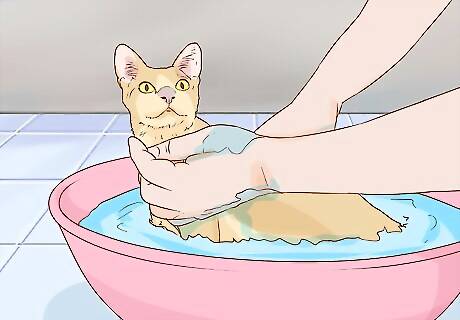
Bathe your cat. Use pet shampoo to bathe your cat to ensure no traces of fecal matter are left on their coat. This can help prevent giardia from spreading to other pets in the house as well as to humans. It can also keep your cat from getting reinfected after taking medications.
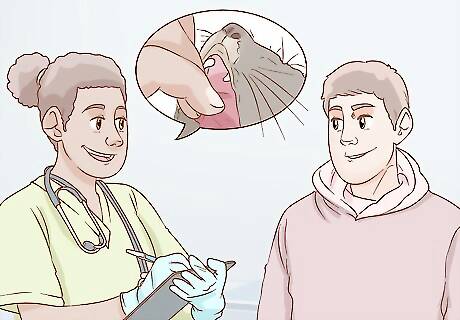
Administer regular medication to outdoor cats. If your vet suggests it you can administer medication for giardia regularly to outdoor cats. The medication is not harmful for cats who do not have giardia and it can help stop an infection right away. Ask your vet whether regularly giving your cat giardia-fighting medications is right for you.
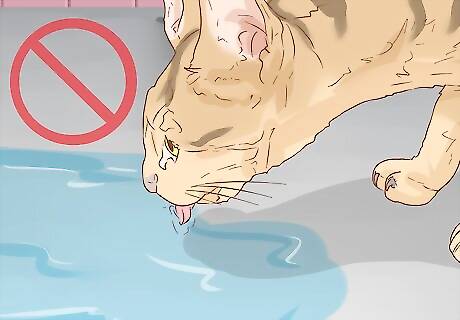
Limit access to outside water. Giardia can be ingested through water from creeks, lakes, and ponds. Keep your cat inside for the most part, especially if you live near a body of water. Your cat should only drink clean tap water to prevent giardia.















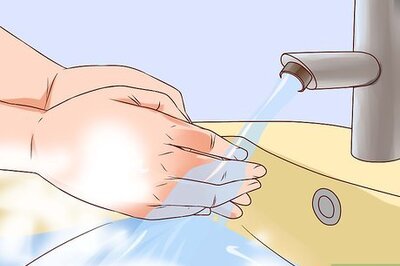


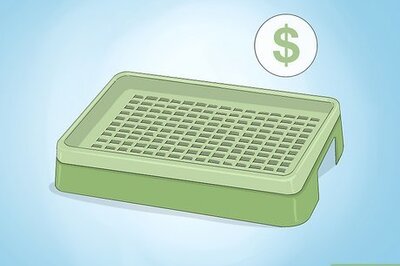
Comments
0 comment